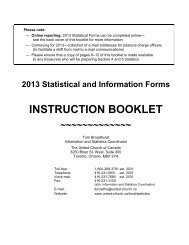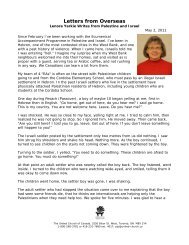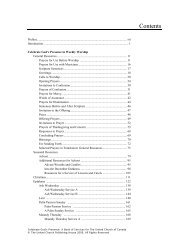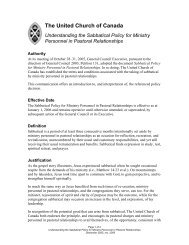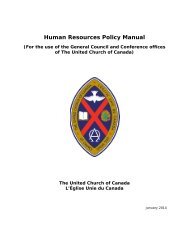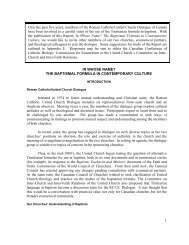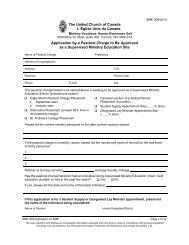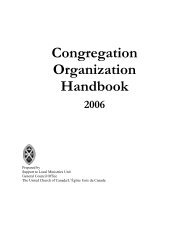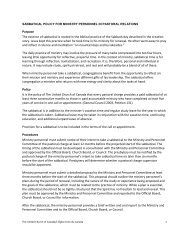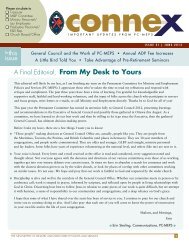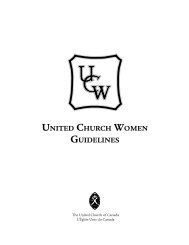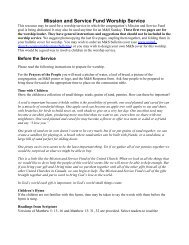Guidelines for Transition Teams - The United Church of Canada
Guidelines for Transition Teams - The United Church of Canada
Guidelines for Transition Teams - The United Church of Canada
Create successful ePaper yourself
Turn your PDF publications into a flip-book with our unique Google optimized e-Paper software.
Appendix 6: Sample Decision-Making Agreement<br />
<strong>The</strong> following principles were agreed to by one <strong>Transition</strong> Team that decided to use a consensusseeking<br />
model.<br />
1. We must hear from everyone be<strong>for</strong>e any decision is made.<br />
2. Responsibility lies with each person, but the chair will also make sure that everyone is heard,<br />
understands the issue, and states his or her opinions on the matter.<br />
3. If anyone is absent from the meeting, no decision will be considered final until those who were<br />
not present are briefed on the discussion, understand the implications <strong>of</strong> the decision, and make<br />
their judgment. Note: We can use e-mail or other “distance” means to in<strong>for</strong>m a member about a<br />
partial consensus reached in his or her absence. However, an e-mailed reply indicating agreement<br />
is sufficient only on procedural matters. On matters <strong>of</strong> substance, every ef<strong>for</strong>t must be made to<br />
include the absent person in discussion be<strong>for</strong>e completing the consensus to a decision.<br />
4. We reach consensus when all members find themselves at one <strong>of</strong> these levels:<br />
• totally in favour<br />
• some reservations but generally in favour<br />
• serious reservations but will go along<br />
• or, at the very least, do not object to the decision <strong>of</strong> the group<br />
5. When there is an irresolvable objection, that is, when any one person cannot go along with the<br />
judgment <strong>of</strong> the group, we agree that the matter will be put to a vote.<br />
6. If there is a vote, a team member who objects may abstain, thereby recording the reservation.<br />
However, that person agrees to abide by the majority decision and will continue to honour<br />
confidentiality.<br />
7. Those who cannot abide by the majority decision may wish to resign from the team. <strong>The</strong>y would<br />
then be free to state the reasons <strong>for</strong> their abstention in public, providing they do not violate the<br />
principles <strong>of</strong> confidentiality.<br />
<strong>Guidelines</strong> <strong>for</strong> <strong>Transition</strong> <strong>Teams</strong> 49



